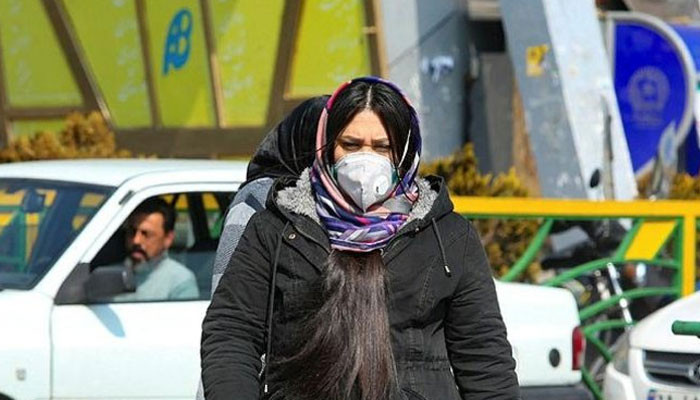What happens to you if you catch the coronavirus?
Initial studies suggested that the virus was most fatal for the elderly
March 24, 2020

Four months after the deadly coronavirus first surfaced, there is still very little clarity on how it affects people and who are most vulnerable.
Initial studies suggested that the virus was most fatal for the elderly. However, new reports, emerging from around the world, indicate that the young are just as vulnerable.
In Pakistan, a large part of the debate, about the coronavirus, has been centered around the shortage of ventilators, a machine that helps patient’s breathe. But do all the infected need to be put on a ventilator?
Geo.tv talks to Dr Sultan Rasool, who is treating coronavirus patients in Dera Ghazi Khan, where the most number of confirmed cases have been reported in the Punjab province, to explain how the virus affects an individual. Excerpts:
What are the symptoms?
It really varies from person to person. Some experience flu and high-grade fever. I am talking 104 F to even 105 F. That is followed by a severe dry cough and shortness of breath. The most problematic thing about this virus is that it can mutate within a person’s body and quickly become lethal.
But then there are people who only experience symptoms of a common cold.
Once infected, what do the next two weeks look like?
Again that depends on how long the virus stays in your body. If matters get complicated than a few things can happen. One, you could suffer a respiratory arrest, this is when a person has difficulty breathing on their own and are in need of a ventilator to assist.
What we have also seen recently, especially in the case of Dr Osama Riaz, the doctor who died in Gilgit-Baltistan, was that he had a renal failure first and then brain damage.
But once more, there are people who do not show any severe symptoms and can simply stay at home to get better.
What factors determine if a patient will require a ventilator?
There is a lot of misinformation about that. Not everyone needs it. What I have seen is that if a person is over 50 years of age, or even if they are younger and their immunity and health is generally weak, they will, at some point, need to be put on a ventilator within 10 days of being infected.
How many days would a person need to spend in the hospital?
Hospital or home, you will need to be isolated for a minimum of 14 days.
What does the hospital treatment consist of?
Since, at the moment, there is no vaccine, our treatment is symptomatic. Which means that if you have fever, we will give you Panadol. If you are feeling dehydrated or have lost your appetite, you will be treated for that.
Recently, we tried using the anti-malaria drug Chloroquine on our patients. That helps because it can turn a virus into a bacteria, making it easier to fight. Also, the drug is known to increase immunity. But we are still monitoring its affects.











